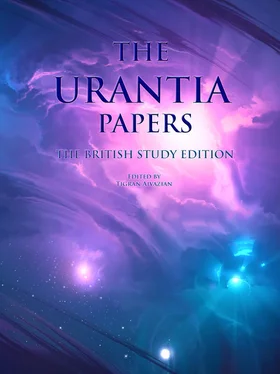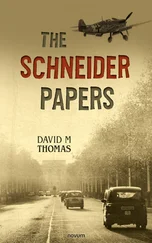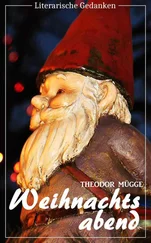Law, In 1955 text: law. See the note on 123:5.3.
Notes to Paper № 147
evil-doing, In 1955 text: evil doing. While the earliest occurrences (14 th- 16 thcenturies) of evil doer and evil doing are open, there has been a clear preference for the hyphenated form since the 17 thcentury and it is the form approved by both the OED and Webster’s. The closed form, found at three locations in the 1955 text: 159:3.9 188:4.3 188:4.5 is, as far as we can tell, unsupported by any contemporary source. [cf evil-intending in the preceding paragraph which is essentially a coined concept and its form illustrates general Chicago Manual of Style principle of hyphenating adjectival phrases prior to a noun.
Men, if ... breakers of the law, These words of Jesus are preserved (albeit in a modified form) only in the Codex Bezae Cantabrigiensis (V c.) at Luke 6:4 “Τη αυτη ημερα θεασαμενος τινα εργαζομενον τω σαββατω, ειπεν αυτω, Ανθρωπε, ει μεν οιδας τι ποιεις μακαριος ει; ει δε μη οιδας επικαταρατος, και παραβατης ει του νομου.”, or, translated into English, “On the same day, seeing one working on the Sabbath, he said unto him, Man, if indeed thou knowest what thou dost, blessed art thou; but if thou knowest not, thou art cursed, and art a transgressor of the law.”
Notes to Paper № 149
and the Master, among other things, said in reply, In 1955 text: and the Master among other things said, in reply. This sentence required two edits to make it flow correctly: at this location a comma was inserted after “the Master” and a pre-existing comma that originally followed “said” was moved in front of it — to follow “things”.
sometime, In 1955 text: some time. See note for 60:3.20, “sometime” is correct.
Notes to Paper № 153
Jairus’s, In 1955 text: Jairus’. The corrected form is supported by usage elsewhere 152:1.1 and 152:1.3. The Chicago Manual of Style recommendations have been evolving over time, with the 9 th- 11 theditions favouring the original version here, but the (12 th) and 13 th, supporting the revision. This evolution is recognized by the other contemporary sources, with Fowler (1926) noting that the form s’ is still retained “in poetic or reverential contexts ... But elsewhere we now add the s...” Strunk (1918) however, in that author’s famously opinionated way, has as its very first rule of usage: “Form the possessive singular of nouns by adding ’s. Follow this rule whatever the final consonant... Exceptions are the possessive of ancient proper names in -es and -is and the possessive Jesus’ ... Usage in the 1955 text follows, with only this exception, the more modern practices supported by Fowler and Strunk. (An important supporting example being Lazarus’s, which would be found without its ’s under the older rules.)
hearken to me, all of you, In 1955 text: hearken to me all of you. The comma properly separates the phrases, making this sentence much easier to read.
Notes to Paper № 158
Gabriel and the Father Melchizedek, But elsewhere (see 35:1.2 and the note there) it is said that they are never away from Salvington at the same time.
Notes to Paper № 159
evil-doing, In 1955 text: evildoing. See note at 147:4.2.
Notes to Paper № 162
done., In 1955 text: done? (question mark) This is an indirect question contained within a declarative sentence, so the period rather than the question mark is the correct closing punctuation mark.
Notes to Paper № 165
Maccabee, In 1955 text: Maccabeus. Although Maccabeus is a more accurate transliteration of the Greek, Maccabee is very common in English works and is used in all other occurrences of the word in the Urantia papers. Therefore, the committee decided to standardize on “Maccabee.”
Notes to Paper № 167
I must needs go to prove it, In 1955 text: I must needs to goprove it. This is simply bad English and has to be corrected.
Notes to Paper № 168
INFORMATIONALFirst printing: Bethphage; — The 1955 text uses Bethpage in all 13 occurrences of this word. In the 4 thprinting, the original was changed to Bethphage here, and at ten other locations; the remaining two were changed in the 9 thprinting. These changes were presumably made because Bethphage is the spelling found in English Bibles since the Authorized Version (King James) of 1611. While the apparent misspelling in The Urantia Book is not theologically or historically significant, it seems unlikely to the committee that so many identical typographical errors could have occurred, so the spelling “Bethpage” must have been used in the original manuscript. The committee made its decision to retain the original form based on three factors: 1) It is the only form found in the text of the UB itself; 2)The form is a reasonably accurate transliteration of the sound of the original; and 3) Though the form found in the UB is uncommon, it is not unique — the spelling having been found in numerous texts pre-dating the UB and in various references down to the present day including a number on the Web.
days, In 1955 text: day. The change from “day” to “days” here is required because the former is inconsistent with the ensuing narrative (at 174:0.1, 175:3.1, and 177:5.3 which would place the time of Lazarus’s flight between Tuesday at midnight (when his death was decreed by the Sanhedrin) and Wednesday evening (when “certain ones” at the camp “knew that Lazarus had taken hasty flight from Bethany”) — two days before the crucifixion of Jesus. Because of the near impossibility of a typographical error leading from “week” in the manuscript to the “day” found in the 1955 text, the committee rejected the “week” resolution (found in numerous printings) and adopted “days.” If the original manuscript read “days,” the loss of only a single character in typesetting would create the problematic “day.” This is a very common type of error and well within the realm of possibility. Though “days” is a new resolution to this problem and therefore unfamiliar to readers — perhaps some will see it as a “stretch” — it bears repeating (as with West/west at 79:5.6) that if the 1955 text had originally read “days,” there would have been no contradiction in the text and the issue would never have been raised in the first place.
Notes to Paper № 169
was laid, In 1955 text: laid. This sentence, as structured, does require “lay” rather than “laid,” the former being the past tense of the intransitive verb “to lie;” the latter being the past of the transitive verb “to lay.” However, it is the committee’s opinion that the error here is not poor grammar by the author, but a lost word in transcription. The authors of Part IV of The Urantia Book generally follow the text of the American Standard Version (ASV) of 1901, with certain modernizations and corrections as needed. The ASV text of Luke 16:19-21 is as follows: “Now there was a certain rich man, and he was clothed in purple and fine linen, faring sumptuously every day: and a certain beggar named Lazarus was laid at his gate, full of sores, and desiring to be fed with the crumbs that fell from the rich man’s table; yea, even the dogs came and licked his sores.” In view of the apparent reliance of The Urantia Book on the ASV at this point, the committee decided to reject “lay” and reconstruct the verb as “was laid.” Additional contextual support for this argument is based on the beggar’s inability to fend for himself. If “even the dogs came and licked his sores,” he surely would have been carried to the rich man’s gate by others, who would then have laid him there.
Читать дальше






![Theresa Cheung - The Dream Dictionary from A to Z [Revised edition] - The Ultimate A–Z to Interpret the Secrets of Your Dreams](/books/692092/theresa-cheung-the-dream-dictionary-from-a-to-z-r-thumb.webp)





